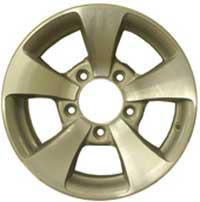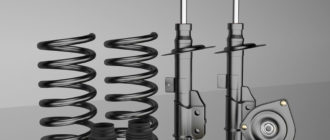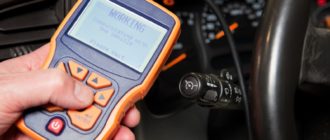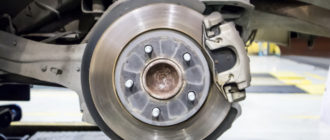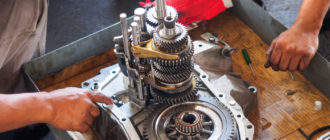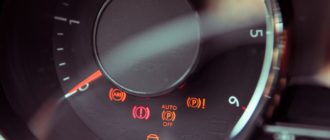Dealing with a rough idle can be a frustrating experience for any car owner. Not only does it make your vehicle difficult to drive, but it can also lead to costly engine damage if left untreated. However, before you take your car to the mechanic, it’s important to understand what could be causing the problem and how to fix it like a pro.
There are several reasons why your car might be experiencing a rough idle, including issues with the fuel system, ignition system, or the engine itself. In some cases, a simple tune-up or part replacement can fix the problem. However, in other instances, the issue may be more complex and require a more in-depth diagnosis.
In this article, we’ll take a closer look at some of the most common causes of rough idle and provide tips for diagnosing and fixing the problem. Whether you’re a seasoned mechanic or a car owner with limited mechanical knowledge, this guide will help you get to the bottom of your rough idle issues and get your car running smoothly once again.

source: https://axleaddict.com/auto-repair/Engine-Rough-Idle-Problems
Understanding Rough Idle: Common Causes and Solutions
Rough idle refers to an engine that is running unevenly, often accompanied by vibrations or shakes felt throughout the vehicle. It’s a common issue that can be caused by a variety of factors, and it can make driving uncomfortable and even dangerous. If you’re experiencing rough idling, it’s important to understand the causes and how to fix it.
One of the most common causes of rough idle is a malfunctioning Idle Air Control (IAC) valve. This valve regulates the amount of air that enters the engine while idling. If it’s not functioning properly, the engine may not be getting the proper amount of air, leading to rough idling. Cleaning or replacing the IAC valve is usually the solution.
- Another common cause of rough idle is dirty or clogged fuel injectors. Over time, fuel injectors can become clogged with dirt and debris, causing them to malfunction. This leads to an imbalance in the air-to-fuel ratio, resulting in rough idling. Flushing the fuel system or replacing the fuel injectors can help to resolve this issue.
- Faulty spark plugs or ignition coils can also cause rough idle. These components are responsible for igniting the fuel in the engine, and if they’re not functioning properly, the engine may not run smoothly. Replacing these components can help to resolve rough idling.
- A clogged or damaged air filter can also cause rough idle, as it can prevent adequate airflow to the engine. Replacing the air filter can often resolve this issue.
Overall, troubleshooting rough idle requires a careful diagnosis of the underlying causes. By understanding the common causes and solutions, you can address the issue like a pro and restore smooth operation to your vehicle.
Causes of Irregular Idle: Common Culprits to Look Out For
Irregular idle in a vehicle is a common problem that can be caused by a variety of factors. One key culprit is a dirty air filter. A clogged air filter restricts airflow to the engine, leading to an irregular idle. A worn-out spark plug can also cause a rough idle. A spark plug that doesn’t generate enough spark can make the engine struggle to run smoothly, leading to a compromising idle.
Another possible cause of rough idle is a vacuum leak. A vacuum leak causes an imbalance in the air-to-fuel ratio, leading to a lack of proper combustion which in turn leads to an irregular idle. Additionally, a malfunctioning fuel injector can also cause a rough idle. A malfunctioning fuel injector can spray fuel unevenly into the engine, resulting in a rough idle and potentially other issues, such as a lack of power or excessive fuel consumption.
- A dirty throttle body is another common cause of rough idle. The throttle body plays a vital role in helping to regulate the air intake into the engine. A dirty throttle body means air travels less uniformly into the engine, which can result in a rough idle.
- Lastly, the mass airflow (MAF) sensor could be the problem. The MAF sensor helps to regulate the amount of air that enters the engine for combustion. If this sensor is not working correctly, it could cause the idle to become rough.
If you’re experiencing a rough idle, you may need to identify the exact cause of the problem. Often, fixing the problem requires the help of a professional mechanic who can properly diagnose and fix the underlying issue, ensuring a smooth running engine and a trouble-free ride.
Troubleshooting Rough Idle: Understanding the Causes and Fixing It Like a Pro
If your car engine is having a rough idle, it can be a frustrating experience. A rough idle can feel like the engine is shaking, and it can cause the vehicle to vibrate. It may also lead to stalling, which can be dangerous while driving. Fortunately, there are a few steps you can take to understand the causes of rough idle and fix it like a pro.
One of the most common causes of rough idle is a dirty or clogged air filter. This prevents air from properly flowing into the engine, which can cause idle problems. Another cause could be a malfunctioning sensor, like the throttle position sensor or mass air flow sensor. These sensors are responsible for regulating the air and fuel mixture, and when they fail, the engine can experience a rough idle.

source: https://bmwrepairguide.com/bmw-e46-rough-idle-repair/
Another potential cause of rough idle is a problem with the fuel system. If the fuel injectors are dirty, clogged, or malfunctioning, the engine may not be getting enough fuel to properly function. Additionally, a bad fuel pump or fuel filter can also cause issues with idle.
- Steps to Fix Rough Idle:
- Check the air filter and replace it if necessary.
- Inspect the sensor and replace it if faulty.
- Clean the fuel injectors, fuel pump, or fuel filter.
By following these steps, you can identify and fix the causes of rough idle like a pro. Regular maintenance, like changing the air filter and cleaning the fuel system, can help prevent rough idle from occurring in the first place.
If you have tried these steps and the rough idle persists, it may be time to bring your vehicle to a professional mechanic. They can diagnose the issue with specialized tools and knowledge, and help you get your car running smoothly again.
Preventing Rough Idle
Experiencing a rough idle in your vehicle can be a frustrating experience. However, understanding the causes of rough idling and the steps that can be taken to prevent it can help you avoid this issue altogether.
One common cause of rough idle is a dirty fuel injector. Over time, deposits can build up on the injector and cause it to malfunction. Regularly cleaning your fuel injectors can help prevent this issue.
Another potential cause of rough idling is a malfunctioning oxygen sensor. This component helps ensure that the engine is receiving the correct amount of oxygen for efficient combustion. If this sensor malfunctions, it can cause the engine to run poorly. Regularly checking and replacing your oxygen sensor can help prevent this issue.
- Ensure that your vehicle is receiving regular maintenance, including oil changes and tune-ups.
- Check for any vacuum leaks, which can cause air to enter the engine and disrupt the air/fuel mixture.
- Use high-quality fuel and consider adding a fuel system cleaner to your tank periodically.
By taking these steps to prevent rough idling, you can help ensure that your vehicle runs smoothly and reliably. If you continue to experience rough idling despite these measures, it may be time to seek the advice of a professional mechanic.
The symptoms of a rough idle include shaking or vibrating, unusual engine noises, a decrease in engine power, and a check engine light on the dashboard.
Rough idle can be caused by a variety of factors, including dirty or clogged fuel injectors, a malfunctioning oxygen sensor, a faulty ignition coil, a vacuum leak, or a problem with the engine's computer.
To diagnose the cause of rough idle, you can use a scan tool to read the engine codes, inspect the spark plugs, check the fuel pressure, inspect the air filter and throttle body, and perform a compression test.
Yes, a bad battery can cause rough idle because it can prevent the engine from receiving the proper amount of electrical power it needs to run smoothly.
Fixing rough idle often requires identifying and repairing the underlying cause. Solutions may include cleaning or replacing the fuel injectors, replacing a faulty ignition coil, repairing a vacuum leak, or replacing the oxygen sensor.
If you don't fix rough idle, it can lead to more serious engine problems down the road, such as reduced fuel efficiency, increased emissions, and even engine failure.
